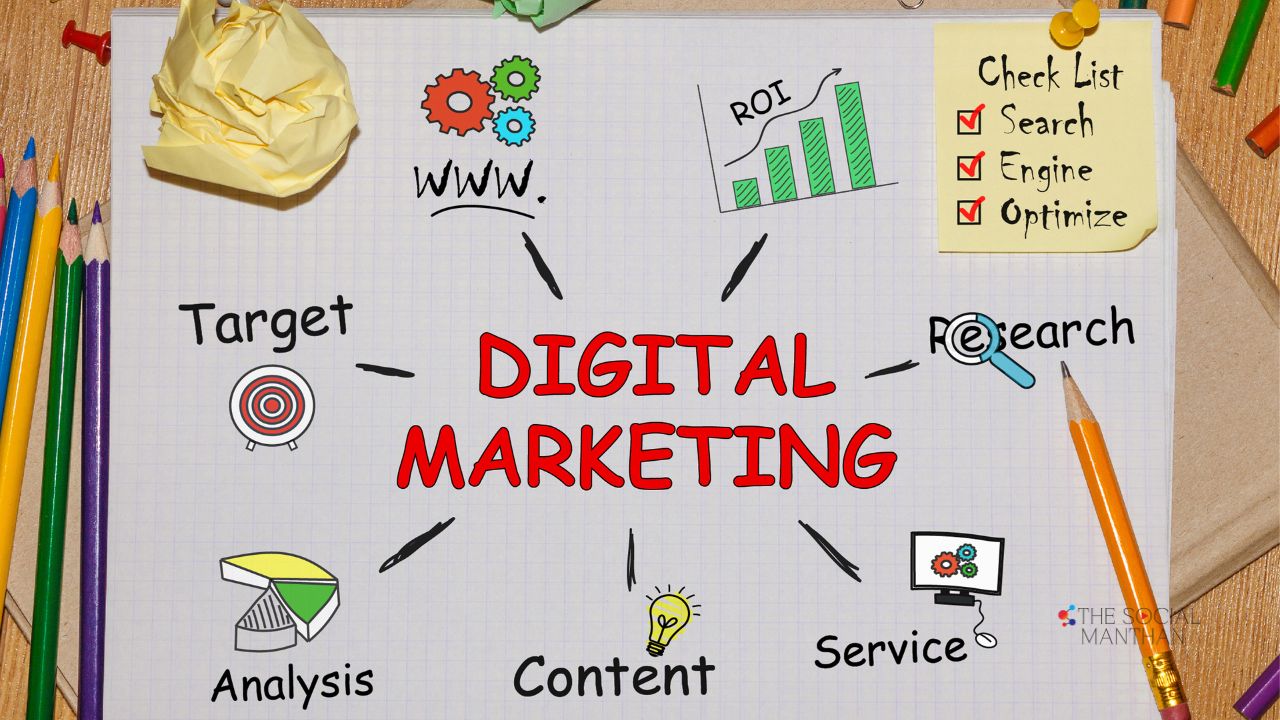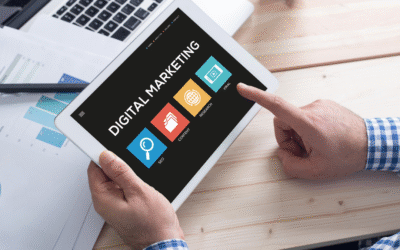Many businesses today rely heavily on digital marketing to reach and engage their audiences effectively. As I explore the top seven types of digital marketing, I will help you understand how each type plays a vital role in your overall marketing strategy. By identifying these categories, you can better tailor your approach to suit your goals, enhance your brand visibility, and attract more customers in the digital landscape.
Search Engine Optimization (SEO)
Your journey into digital marketing will undoubtedly lead you to the significance of Search Engine Optimization (SEO). This practice involves optimizing your website and online content to improve visibility in search engine results pages. By employing SEO techniques, I assist you in attracting organic traffic, enhancing your online presence, and driving valuable leads to your business.
Importance of SEO
The importance of SEO cannot be overstated; it is imperative for establishing a credible digital footprint. With most online experiences starting with a search engine, I believe that effective SEO strategies will elevate your website’s authority and ensure that you attract the right audience.
Key SEO Techniques
Across the digital landscape, various techniques come into play for effective SEO, including keyword research, on-page optimization, backlink building, and technical SEO. Each technique is designed to improve your site’s performance and its alignment with search algorithms, which helps you rank higher in search results.
In addition, incorporating user experience signals such as page load speed and mobile-friendliness can enhance your SEO efforts. Utilizing tools for keyword analysis allows me to identify high-value search terms to target, while creating quality content ensures that your audience remains engaged. With these techniques working in tandem, I can help you develop a robust SEO strategy that effectively drives traffic and boosts your online visibility.
Content Marketing
If you’re looking to build brand awareness and engage potential customers, content marketing is a powerful digital marketing strategy. It focuses on creating and distributing valuable, relevant, and consistent content to attract and retain a clearly defined audience. By doing so, you foster genuine connections with your audience, ultimately driving profitable customer action.
Types of Content
Against the backdrop of digital marketing, here are some common types of content you can utilize:
| Content Type | Description |
|---|---|
| Blogs | Informative articles that engage readers. |
| Videos | Visual content that can tell a story or explain concepts. |
| Infographics | Visual representation of information or data. |
| Podcasts | Audio content that can be consumed on-the-go. |
| eBooks | In-depth guides or reports on specific topics. |
Knowing the different types of content helps you tailor your approach based on your audience’s preferences.
Strategies for Effective Content Marketing
Around creating compelling content, it’s vital to have a clear strategy. Start by identifying your target audience and understanding their needs. This will guide your content creation efforts. Additionally, be consistent in your messaging and use a mix of formats to keep your audience engaged. Don’t forget to promote your content across various platforms to maximize reach.
And to enhance your content marketing strategies, I recommend leveraging SEO techniques to improve visibility, analyzing performance metrics to understand what works best, and encouraging audience interaction. Engaging with your audience through comments and social media can foster loyalty and community, making your content even more impactful.
Social Media Marketing
Now, social media marketing refers to the use of social media platforms to promote products, services, and brands. This type of digital marketing leverages the immense reach and engagement of platforms like Facebook, Twitter, Instagram, and LinkedIn to connect with potential customers. With the right strategy, social media marketing can help increase brand awareness, drive traffic, and ultimately boost sales.
Platforms and Their Audiences
Before venturing into social media marketing, it’s important to understand the various platforms available and their unique audiences. Each social media platform caters to different demographics and user preferences, influencing how you tailor your content. For example, Instagram is visually driven and popular among younger users, while LinkedIn thrives on professional networking and is favored by business professionals.
Engaging Your Audience
Beside understanding platforms, engaging your audience is key to successful social media marketing. This involves creating compelling content that resonates with your followers and encourages interaction. I find that asking questions, sharing user-generated content, and posting interactive polls can significantly enhance engagement levels, fostering a sense of community around your brand.
Engaging your audience goes beyond merely posting updates; it’s about building relationships. By actively responding to comments and messages, you create a dialogue that makes your followers feel valued. Sharing relatable stories, behind-the-scenes content, or even hosting live Q&A sessions can further strengthen this connection. Ultimately, when your audience feels engaged, they are more likely to become loyal customers and advocates for your brand.
Pay-Per-Click Advertising (PPC)
For businesses looking to drive immediate traffic and visibility, Pay-Per-Click Advertising (PPC) offers a highly effective solution. As a form of digital marketing, PPC allows advertisers to place their ads on search engines and social media platforms, where they pay each time someone clicks on their ad. This model enables you to reach your target audience quickly and efficiently, making it a favorite among many marketers.
How PPC Works
Below, I’ll break down how PPC operates. Advertisers bid on keywords relevant to their business, and when a user searches for those keywords, the search engine displays the ads. Your ad’s position is determined by the bid amount and the quality score assigned by the platform, which assesses the relevance and performance of your ad. This results in a prominent placement on search engine results pages (SERPs) or social media feeds.
Benefits of PPC Campaigns
Above all, PPC campaigns provide numerous advantages that can enhance your marketing strategy. They enable you to gain immediate visibility on platforms like Google and Facebook, allowing you to reach potential customers at their moments of interest. Additionally, you have full control over your budget, allowing for flexibility and optimization based on performance.
It’s important to recognize that the benefits of PPC extend beyond immediate traffic. You can track your campaigns in real-time, allowing for quick adjustments and better targeting. PPC also offers granular segmentation options, helping you to connect with specific audiences based on demographics, location, and behavior. Ultimately, this precision leads to improved conversion rates and a better return on investment, making PPC a vital tool in a comprehensive digital marketing strategy.
Email Marketing
All businesses can benefit from email marketing as it remains one of the most effective digital marketing channels. With the right strategy, I can help you engage directly with your audience, promote your products or services, and drive conversions. It allows for personalized communication, building lasting relationships with your customers through regular, meaningful content delivered straight to their inboxes.
Building Your Email List
About building an email list is important for successful email marketing. I recommend starting by offering value to your potential subscribers. You can create enticing lead magnets such as eBooks, discount codes, or exclusive content to encourage sign-ups. Utilizing sign-up forms on your website and engaging with your audience on social media can also effectively grow your list.
Crafting Effective Campaigns
About crafting effective campaigns involves understanding your audience and tailoring messages that resonate with them. I suggest segmenting your list to deliver relevant content to specific groups, improving your open and click-through rates. Additionally, A/B testing subject lines and content can help you refine your approach and discover what works best for your audience.
At the heart of crafting effective campaigns is the need for clarity and value. I emphasize clear subject lines that grab attention and content that speaks directly to your audience’s needs and interests. Incorporating strong call-to-actions is important, guiding your readers towards the desired action. Consistency in your messaging and scheduling can also help to establish trust and familiarity with your audience, ultimately leading to better engagement and results.
Affiliate Marketing
Keep in mind that affiliate marketing is a performance-based strategy where I promote products or services and earn a commission for every sale made through my referral. This approach allows you to capitalize on your online presence while providing value to your audience by recommending relevant products that they might find useful.
Understanding Affiliate Marketing
By participating in affiliate marketing, I leverage unique referral links provided by merchants to track the sales I generate. This system creates a win-win situation for both parties, as I can monetize my content, while businesses gain exposure to potential customers they might not reach otherwise.
Best Practices for Success
About succeeding in affiliate marketing, it is imperative to focus on transparency, target the right audience, and select high-quality products to promote. I strive to maintain authenticity in my recommendations, ensuring that they align with the interests of my audience and the values of my brand.
Affiliate marketing can genuinely enhance my revenue streams, but I must choose my partners wisely and offer value to my readers. Regularly analyzing performance metrics and optimizing my strategies also plays an important role in my success. Engaging content, strategic placements of affiliate links, and consistent communication with my audience will help build trust, leading to higher conversion rates.
Final Words
Considering all points, I believe understanding the top 7 types of digital marketing—SEO, content marketing, social media, email marketing, PPC, affiliate marketing, and influencer marketing—can significantly enhance your promotional strategies. Each type offers unique advantages that can target your audience effectively and drive engagement. By leveraging these digital channels, you can grow your brand presence and foster customer relationships, ultimately leading to business success. It’s important to evaluate which methods align with your goals and tailor your approach accordingly.









